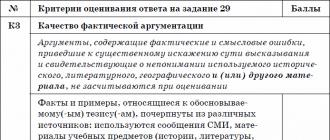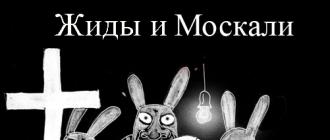The meaning of the word whistle in the explanatory dictionary of Ephraim. The meaning of the word whistle in a large modern explanatory dictionary of the Russian language What does whistle mean
WHISTLE
whistling O To
1) a) A device, a tool for whistling.
b) A device for signaling by whistling, buzzing.
2) The whistle produced by such devices.
3) unfold Same as: whistling (1,2).
Efremov. Explanatory Dictionary of Ephraim. 2012
See also interpretations, synonyms, meanings of the word and what is WHISTLE in Russian in dictionaries, encyclopedias and reference books:
- WHISTLE in the Dictionary of thieves' jargon:
- 1) liar, 2) ... - WHISTLE in the Big Encyclopedic Dictionary:
- WHISTLE
satirical department of the magazine "Contemporary". In 1859-63 a total of 9 issues were published. The creator and main author of "S." was N. A. Dobrolyubov ... - WHISTLE
supplement to the journal. "Contemporary" ... - MILITARY WHISTLE in the Encyclopedic Dictionary of Brockhaus and Euphron:
in the ground forces it is used to send a signal to the circuit; moreover, S. is supposed to have a sentry on duty to call from ... - WHISTLE in the Encyclopedic Dictionary:
, -tka, m. 1. Device, with the help of which a whistle is produced. Whistle signal. 2. The whistle produced by such a device. Anxious… - WHISTLE in the Big Russian Encyclopedic Dictionary:
WHISTLE, acoustic emitter that converts air energy. jet into sound energy. … - WHISTLE in the Full accentuated paradigm according to Zaliznyak:
whistle"to, whistles", whistle", whistle"in, whistle", whistle"m, whistle"k, whistles", whistle"m, whistle"mi, whistle", ... - WHISTLE in the dictionary of Synonyms of the Russian language:
call, whistle, ... - WHISTLE in the New explanatory and derivational dictionary of the Russian language Efremova:
m. 1) a) A device, a tool for whistling. b) A device for signaling by whistling, buzzing. 2) The whistle produced by such ... - WHISTLE in the Dictionary of the Russian Language Lopatin:
whistle ok... - WHISTLE in the Complete Spelling Dictionary of the Russian Language:
whistle... - WHISTLE in the Spelling Dictionary:
whistle ok... - WHISTLE in the Dictionary of the Russian Language Ozhegov:
the whistle produced by such a device whistle A device used to make a whistle. Whistle signal. Police ... - WHISTLE in the Modern Explanatory Dictionary, TSB:
acoustic emitter that converts the energy of the air jet into sound energy ... - WHISTLE in the Explanatory Dictionary of the Russian Language Ushakov:
whistle, m. 1. The device, through which the whistle is produced. Blow the whistle. The whistle of the locomotive has gone bad. 2. Whistling produced by such ... - WHISTLE in the New Dictionary of the Russian Language Efremova:
- WHISTLE in the Big Modern Explanatory Dictionary of the Russian Language:
m. 1. Device, tool for whistling. ott. A device for signaling by whistling, buzzing. 2. Whistling produced by such devices. … - GALTON WHISTLE in the Great Soviet Encyclopedia, TSB:
whistle, jet-type acoustic emitter for the frequency range from 2-3 to 40-50 kHz. G.'s action with. based on the excitation of vibrations ... - in the Brief Biographical Encyclopedia:
Dobrolyubov, Nikolai Alexandrovich - the most famous Russian critic after Belinsky, the main representative of the method of journalistic consideration of literary works. Sadly, there was a short ... - INTERFERENCE in the Encyclopedic Dictionary of Brockhaus and Euphron.
- DOBROLYUBOV NIKOLAY ALEKSANDROVICH in the Encyclopedic Dictionary of Brockhaus and Euphron:
the most famous Russian critic after Belinsky, the main representative of the method of publicistic consideration of literary works. The short life of a highly gifted young man, dazzlingly brilliant, was unhappy ... - ALARM DEVICES in the Encyclopedic Dictionary of Brockhaus and Euphron:
(German - devices for alarms). This is the name of devices (bells or whistles) for machines that require proper care, which, once only ...
The section is very easy to use. In the proposed field, just enter the desired word, and we will give you a list of its meanings. I would like to note that our site provides data from various sources - encyclopedic, explanatory, word-building dictionaries. Here you can also get acquainted with examples of the use of the word you entered.
The meaning of the word whistle
whistle in the crossword dictionary
Dictionary of medical terms
Explanatory dictionary of the Russian language. D.N. Ushakov
whistle
whistle, m.
The device, through which the whistle is produced. Blow the whistle. The whistle of the locomotive has gone bad.
The whistle produced by such a device. A policeman's whistle blew. The steamer blew his whistle.
Explanatory dictionary of the Russian language. S.I. Ozhegov, N.Yu. Shvedova.
whistle
Device, with the help of which a whistle is produced. Whistle signal.
The whistle produced by such a device. Anxious s.
adj. whistling, -th, -th (to 1 value).
New explanatory and derivational dictionary of the Russian language, T. F. Efremova.
Encyclopedic Dictionary, 1998
whistle
an acoustic emitter that converts the energy of an air jet into the energy of a sound wave.
Whistle
"Whistle", satirical department of the Sovremennik magazine. In 1859-63 a total of 9 issues were published. The creator and main author of "S." was N. A. Dobrolyubov (see his Sobr. soch., v. 7, 1963). In "S." N. A. Nekrasov, N. G. Chernyshevsky, M. E. Saltykov-Shchedrin collaborated, parodies of Kozma Prutkov were published. In accordance with the literary and political program of Sovremennik, S. denounced obscurantists and feudal lords, ridiculed the "progressive" liberals, scourged "pure art". Among satirical genres "S." poetic parody and literary feuilleton prevailed.
Lit .: Leontiev N. G., Dobrolyubov-parodist, “Uch. app. LGU. Philological series. Sciences", 1957, c. thirty; Bograd V. E., Sovremennik magazine. 1847≈1866. Index of content, M. ≈ L., 1959.
Wikipedia
Whistle
Whistle- a device with a hole that emits a high-frequency sound when air is blown through it, a type of gas-jet emitters.
Whistle (disambiguation)
Whistle- a sound signaling device, a type of gas-jet emitter.
- A whistle is a folk musical instrument that plays whistles or trills.
- Locomotive whistle - a device for giving warning and warning sound signals, driven by compressed air or steam (on steam locomotives).
- Galton's whistle is an acoustic emitter of both the audible range and infra- and ultrasound, operating on the principle of a whistle.
- "Whistle" is a satirical supplement to Sovremennik magazine.
- In computer slang, it can mean various USB devices that resemble whistle form: USB-flash drives, transceivers of wireless interfaces (for example, infrared, Bluetooth, modem, own interfaces of wireless keyboards and mice), as well as hardware keys of information security systems or licensed software.
- "Whistle"- colloquial nickname for the MiG-21 aircraft.
- "Whistle"- the colloquial nickname of the Tu-134 aircraft, given because of the high sound of the engines.
- Whistle! is a manga and anime series about football.
Whistle (Zlynkovsky district)
Whistle- a settlement in the Zlynkovsky district of the Bryansk region, as part of the Shcherbinichsky rural settlement.
It is located 1.5 km east of the village of Bolshie Shcherbinichi. There has been no permanent population since 2007.
Whistle (Klintsovsky district)
Whistle- a village in the Klintsovsky district of the Bryansk region, as part of the Rozhnovsky rural settlement.
Located 9 km northwest of the village of Ushcherpye, 6 km southeast of the village of Kozhany.
There has been no permanent population since 2008.
Whistle (satirical app)
"Whistle". Collection of literary, journal and other notes.- a satirical supplement to the Sovremennik magazine, undertaken in 1858 by N. A. Dobrolyubov and N. A. Nekrasov. The application consisted of humorous literary works and critical articles, notes. Also, cartoons were constantly printed in it.
Since the publishers of Sovremennik failed to obtain censorship permission to publish a separate illustrated satirical newspaper, Whistle was published inside Sovremennik and was a kind of "magazine in a magazine." The first issue of "Whistle" was published in January 1859 ("Sovremennik", No. 1), the last - in April 1863.
In addition to Dobrolyubov and Nekrasov, N. G. Chernyshevsky, M. I. Mikhailov, I. I. Panaev, M. A. Antonovich, V. P. Burenin, M. E. Saltykov-Shchedrin participated in the “Whistle” at different times , A. K. Tolstoy, A. M. and V. M. Zhemchuzhnikov and other writers and critics. In the Whistle program, Dobrolyubov outlined the main task of the publication: "to discover and ridicule the bad and funny everywhere and in everything, without any fear of compromising the good side of the subject through it."
Contemporaries treated "Whistle" in different ways; Dobrolyubov was charged with "pandemonium" - a mockery of authorities and an overly caustic polemical tone. A year and a half after the death of Dobrolyubov, the release of "Whistle" ceased, a total of 9 issues came out. In 1981, a complete reprint of all the numbers of the appendix in the series "Literary Monuments" was carried out "in their first printed form", without reconstructing censorship changes and taking into account author's edits.
Examples of the use of the word whistle in the literature.
Whistle, hooting, a broken branch will help find the way for someone who accidentally fell behind, but will soon overtake his comrades.
Sagek, who was busy castrating the enemy leader, froze for a moment, listening to his singing. whistle when the Copper Baboon raced past the jungle.
The team captains approached the first face-off spot in the center circle, the referee whistled into his whistle and threw the puck.
For several moments, Guericke could not perceive what was said and could not answer anything, as there were voices outside. whistles guides, the clatter of running feet.
resounded from below whistle, simultaneously with the whistle, the bugler on duty played the signal to build, and Pruit even managed to objectively assess the bugler.
Under the window, at the station, the rumble of a departing train, muffled by the snow, was heard, which emitted weak whistles that looked like weeping.
Oh, this night, what a whirlwind of tormenting thoughts among signal whistles, the rumble of wheels and the pitching of the wagon!
Modified dolphin blowholes are capable of producing whistles and squeaks, pronounce vowels and some consonants.
The bells on the belfry near the chapel rattled, the steamer gave the third whistle and pulled away from the wall.
whistled whistles like nightingales, the horns buzzed like owls, the locomotive's throat snorted hard, began to smoke, began to breathe, the wheels clanged along the frozen rails, crunched at the pick-up, cracked the wagons, took off from the parking lot, rolled.
Frantikha runs through the village, the dust will be swept away, the chickens are pu-gat, and whistle squeal even louder on the go.
Over the past hour, negotiations between whistles significantly intensified, but their ships also remain in their places.
Members of the special Tarnovodov caste were engaged in training birds, and when a bird was presented or sold to a warrior, they were given with it whistle with a certain tone.
Whistle of the newly minted foreman Nero: a halt is announced, and the cataphracts, dismounting, load the body with combat armor, tightening the lamellar shells with straps.
WHISTLE
Device, tool for whistling.
ott. A device for signaling by whistling, buzzing.
The whistle produced by such devices.
same as whistle 1., 2.
Large modern explanatory dictionary of the Russian language. 2012
See also interpretations, synonyms, meanings of the word and what is WHISTLE in Russian in dictionaries, encyclopedias and reference books:
- WHISTLE in the Dictionary of thieves' jargon:
- 1) liar, 2) ... - WHISTLE in the Big Encyclopedic Dictionary:
- WHISTLE
satirical department of the magazine "Contemporary". In 1859-63 a total of 9 issues were published. The creator and main author of "S." was N. A. Dobrolyubov ... - WHISTLE
supplement to the journal. "Contemporary" ... - MILITARY WHISTLE in the Encyclopedic Dictionary of Brockhaus and Euphron:
in the ground forces it is used to send a signal to the circuit; moreover, S. is supposed to have a sentry on duty to call from ... - WHISTLE in the Encyclopedic Dictionary:
, -tka, m. 1. Device, with the help of which a whistle is produced. Whistle signal. 2. The whistle produced by such a device. Anxious… - WHISTLE in the Big Russian Encyclopedic Dictionary:
WHISTLE, acoustic emitter that converts air energy. jet into sound energy. … - WHISTLE in the Full accentuated paradigm according to Zaliznyak:
whistle"to, whistles", whistle", whistle"in, whistle", whistle"m, whistle"k, whistles", whistle"m, whistle"mi, whistle", ... - WHISTLE in the dictionary of Synonyms of the Russian language:
call, whistle, ... - WHISTLE in the New explanatory and derivational dictionary of the Russian language Efremova:
m. 1) a) A device, a tool for whistling. b) A device for signaling by whistling, buzzing. 2) The whistle produced by such ... - WHISTLE in the Dictionary of the Russian Language Lopatin:
whistle ok... - WHISTLE in the Complete Spelling Dictionary of the Russian Language:
whistle... - WHISTLE in the Spelling Dictionary:
whistle ok... - WHISTLE in the Dictionary of the Russian Language Ozhegov:
the whistle produced by such a device whistle A device used to make a whistle. Whistle signal. Police ... - WHISTLE in the Modern Explanatory Dictionary, TSB:
acoustic emitter that converts the energy of the air jet into sound energy ... - WHISTLE in the Explanatory Dictionary of the Russian Language Ushakov:
whistle, m. 1. The device, through which the whistle is produced. Blow the whistle. The whistle of the locomotive has gone bad. 2. Whistling produced by such ... - WHISTLE in the Explanatory Dictionary of Efremova:
whistle m. 1) a) A device, a tool for whistling. b) A device for signaling by whistling, buzzing. 2) The whistle produced by ... - WHISTLE in the New Dictionary of the Russian Language Efremova:
m. 1. Device, tool for whistling. ott. A device for signaling by whistling, buzzing. 2. Whistling produced by such devices. … - GALTON WHISTLE in the Great Soviet Encyclopedia, TSB:
whistle, jet-type acoustic emitter for the frequency range from 2-3 to 40-50 kHz. G.'s action with. based on the excitation of vibrations ... - in the Brief Biographical Encyclopedia:
Dobrolyubov, Nikolai Alexandrovich - the most famous Russian critic after Belinsky, the main representative of the method of journalistic consideration of literary works. Sadly, there was a short ... - INTERFERENCE in the Encyclopedic Dictionary of Brockhaus and Euphron.
- DOBROLYUBOV NIKOLAY ALEKSANDROVICH in the Encyclopedic Dictionary of Brockhaus and Euphron:
the most famous Russian critic after Belinsky, the main representative of the method of publicistic consideration of literary works. The short life of a highly gifted young man, dazzlingly brilliant, was unhappy ... - ALARM DEVICES in the Encyclopedic Dictionary of Brockhaus and Euphron:
(German - devices for alarms). This is the name of devices (bells or whistles) for machines that require proper care, which, once only ...
Oars were used, and the speed and maneuverability of the ship depended both on the number of rowers and on their well-coordinated work. To make the rowing process rhythmic, special sound signals were given. Flutes and gongs were used for this. With the development of the sailing fleet, another device appeared that went down in the history of navigation as a boatswain's whistle.
Origin of fixture
In the thirteenth century, the crusaders used special pipes to assemble a crew on the deck of a ship. This device is also mentioned in Shakespeare's ode "Tempest" as a symbol and attribute of higher power. In Great Britain, the golden pipe was intended for the Lord Admiral as the most senior rank. English admirals used similar silver wind products. With the development of the British fleet, the king formulated requirements for pipes, according to which the boatswain's whistle, made of gold, should weigh one ounce (28.35 g), and the neck chain on which the device was worn should not exceed one gold ducat with its weight. (3.4 g).
Modern product design
Today, the devices used in England are similar in design to the pipe taken from the neck of the Scottish pirate Andrew Burton. Prior to its capture, various boatswain whistles were used on English ships.
The product is a flat nickel-plated box. Its end looks like a hollow ball, into which a slightly bent tube is inserted. It is worn around the neck on special nickel chains.

What is the name of the boatswain whistle today
This question is often preoccupied by fans of crossword puzzles. In the history of the British Navy, the trophy has become a symbol of victory over the famous Scottish pirate, and the whistles themselves are now officially called Burton pipes.
Bosun's whistle in Russia
For the first time, pipes of the Barton type began to be used in the Russian navy during the reign of Tsar Peter I. Whistles were intended for junior naval ranks: non-commissioned officers and boatswains. In 1925, the Rules for wearing uniforms and clothing were approved for servicemen of the Workers' and Peasants' Red Fleet. According to this document, pipes of the Barton type were introduced into the equipment of the Russian Navy. Since 1930, they have become integral elements of the uniform of ceremonial calculations. Later, the boatswain's whistle received a new name - "signal pipe" - and began to be used by boatswains, combatant foremen, as well as the Red Navy, who were on duty on the upper deck.
During the years of the Soviet Union, boatswain's whistles were made at the Moscow Musical Factory of Wind Instruments, as well as at the Kiev Factory No. 37. Each pipe was equipped with the stamp "MZDI" or the number "37".
Wearing rules
According to the Rules for the RKKF military personnel approved in 1925, boatswain's whistles were worn as follows:
- On pea jackets or overcoats, signal pipes were hung on the right to the loop of the second button.
- If the soldier was wearing a shirt (flannel, uniform or work), then the pipe should have been hooked to the edge of the collar.
- When using a gas mask, the signal pipe chain had to be positioned so that it overlapped its shoulder strap.
Signaling
According to Order No. 64, issued in 1948 by the Commander-in-Chief of the USSR Navy, the document “Signals on the Marine Pipe” was put into effect, which outlined how to blow the boatswain’s whistle correctly. Since that time, the pipe has been considered a means of internal communication, designed for sixteen melodies. Each of them is a call to action. Giving a signal with a pipe is considered a real art. For the sound to be correct, the boatswain's whistle should be held in the palm of the right hand, pressing its ball with half-bent fingers.

After that, you need to blow the whistle, fingering it with your fingers. Depending on the overlap of the hole in the ball, melodies of various tones are created. They can be both soft and deep, and piercingly sharp.
They study the signals of the boatswain's pipes using graphic images that are very similar to musical notation. But in the case of signal pipes, not a five-line, but a three-line camp is used.
Conclusion
Now boatswain's whistles, as before, are used by junior officers on watch or on duty on the upper decks. As evidenced by the sailors' reviews, today it is less and less possible to hear the sound of the boatswain's whistle. Now it is an ordinary accessory, representing one of the integral elements of the watch duty uniform.





